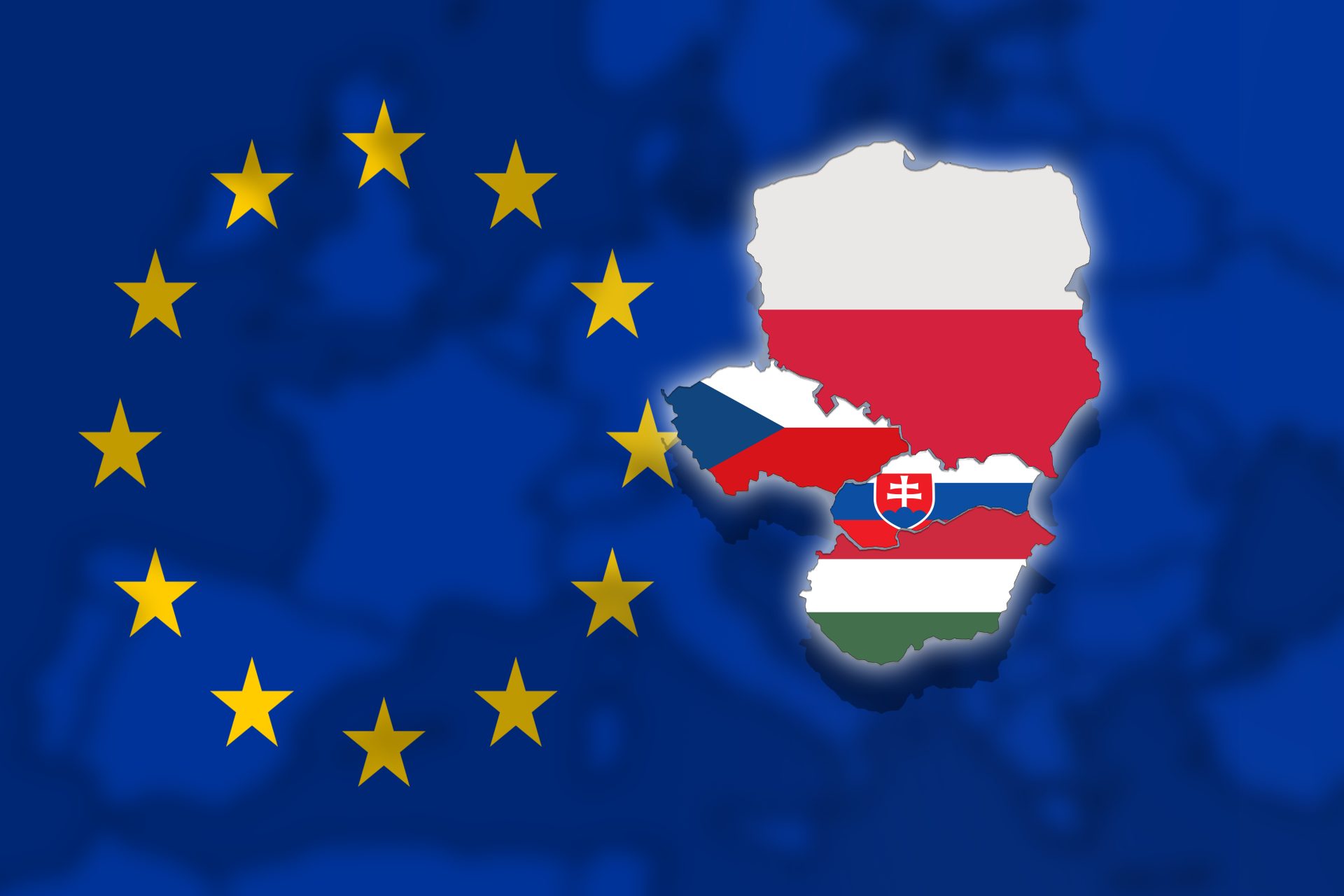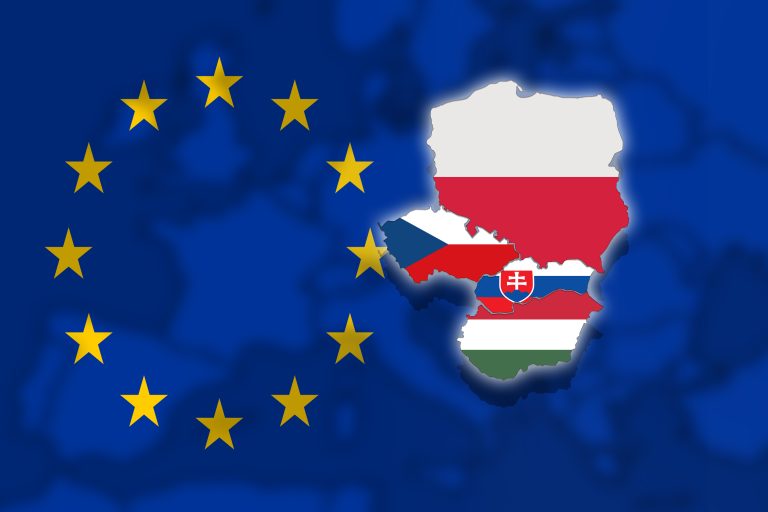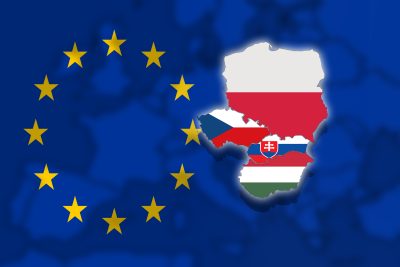Photo: Shutterstock 2025-04-15
Photo: Shutterstock 2025-04-15
A newly released study and public opinion survey offers a revealing snapshot of geopolitical attitudes across the Visegrád Four (Slovakia, the Czech Republic, Hungary, and Poland), shedding light on how citizens in these Central European countries view major global powers, alliances, and perceived security threats.
The study, conducted by the Bratislava-based Central European Institute of Asian Studies (CEIAS) in collaboration with NMS Market Research, was authored by Matej Šimalčík and Filip Šebok.
Fielded between late February and early March 2025, the survey explores shifting attitudes toward entities such as the European Union, NATO, the United States, China, and Russia, and offers breakdowns by political party preference in each country. The survey sample is representative of the population aged 18 to 65.
Slovakia
Among the study’s more striking findings: Slovakia stands out as the most sympathetic toward both China and Russia within the region. In total, just over 29% of Slovaks hold a positive view of Russia—though this marks an 18-percentage-point drop since CEIAS’s last poll in 2020, meaning that Slovakia is the most positive toward Russia but has also had the largest decline in positivity toward Russia among the V4 nations.
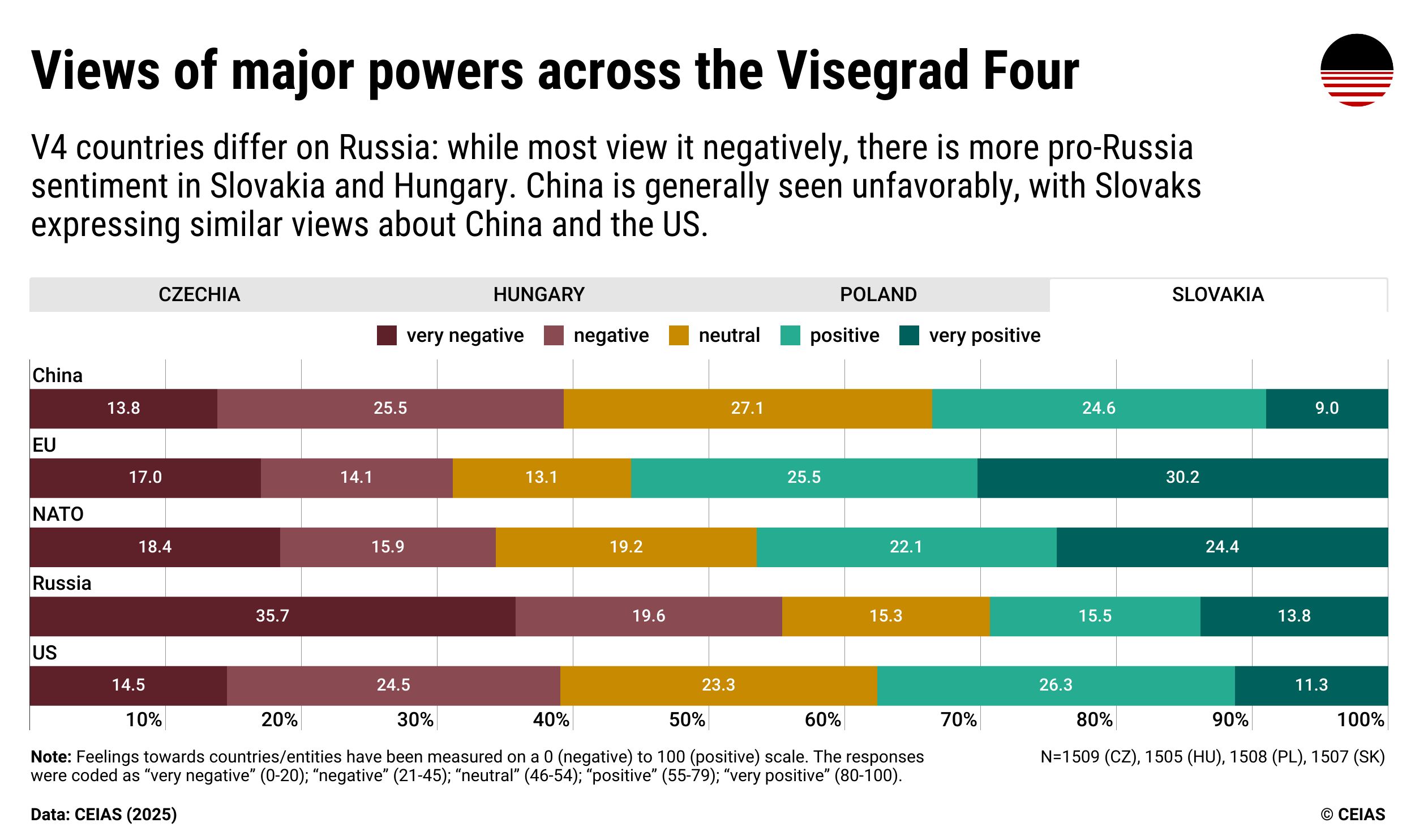
Notably, more Slovaks hold a negative view of the United States than a positive one. The ideological proximity between supporters of Prime Minister Robert Fico’s left-leaning Smer party and those backing the neo-fascist Republika party is particularly pronounced, signaling potential future alignments. A particularly eye-catching data point: 67% of Smer voters express a favorable opinion of Russia, the highest such figure in the region. (Detailed charts by voter preference are available in the full study.)
Hungary
Hungary ranks second in terms of public warmth toward authoritarian powers. However, despite Prime Minister Viktor Orbán’s overtures to Moscow, 61% of Hungarian respondents view Russia negatively, and only 21% hold a positive view of the country. Supporters of Orbán’s ruling Fidesz party are the most pro-Russian (42%), closely followed by voters of the far-right Our Homeland party (40%). In contrast, backers of the main opposition party, TISZA, overwhelmingly reject Russia, with 80% expressing negative views.
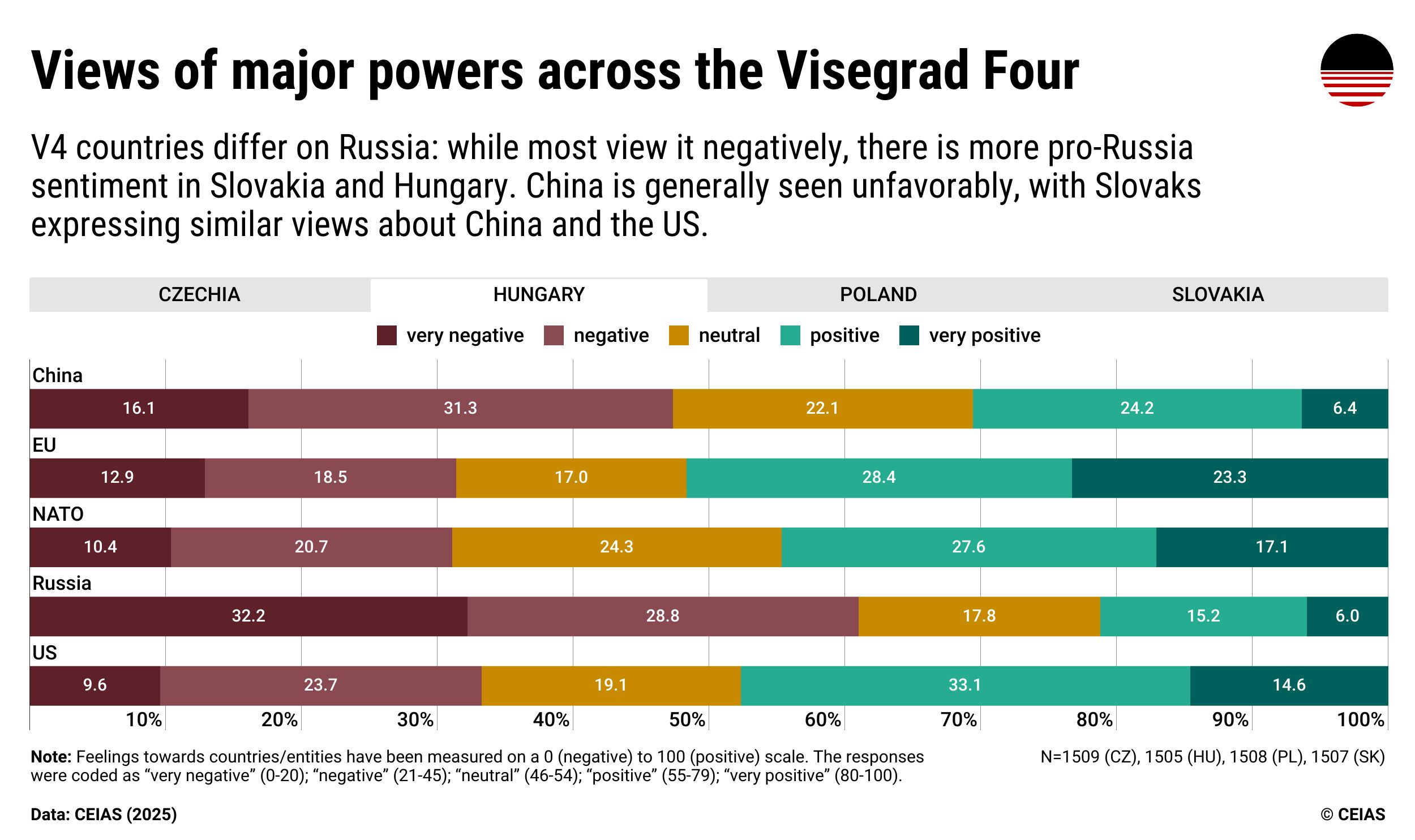
Interestingly, given that Orbán has often boasted of his ties to Donald Trump, the survey reveals that two-thirds of Fidesz voters now express a positive view of the U.S. Nearly half also report favorable opinions of China—aligning with the government’s pro-Beijing rhetoric.
Czech Republic
In the Czech Republic, skepticism toward international alliances and powers holds across the geopolitical spectrum. Just 46.5% of Czech respondents view the EU positively, but also express a wariness toward China (59% negative). Among voters of former Prime Minister Andrej Babiš’s ANO party, 54% hold negative views of the EU, though 70% also dislike Russia—potentially reassuring given ANO’s strong prospects in the October 2025 elections.
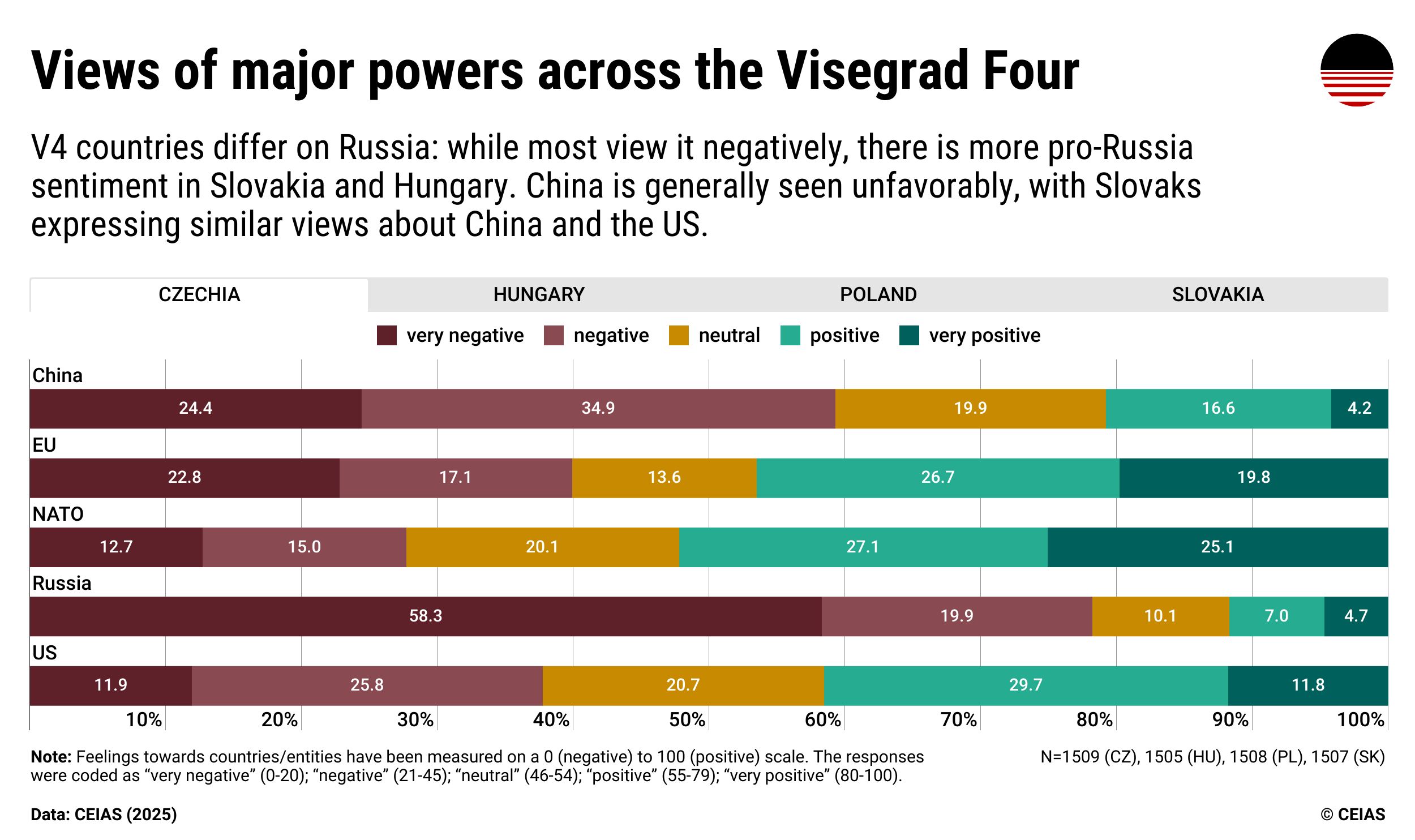
The views of ANO supporters closely resemble those of the newly ascendant far-right/libertarian Motorists’ party, led by MEP Filip Turek, suggesting that a possible future coalition may be acceptable to both parties’ voters.
Poland
Despite deep internal divisions in its domestic politics, Poland appears surprisingly unified in its stance toward Russia: 97% of supporters of the ruling Civic Coalition and more than 90% of the populist right-wing Law and Justice opposition party view Moscow negatively. Even among voters for the far-right/libertarian Confederation party—Poland’s most pro-Russian demographic—75% share that view. Skepticism toward China is similarly widespread, though much less intense.
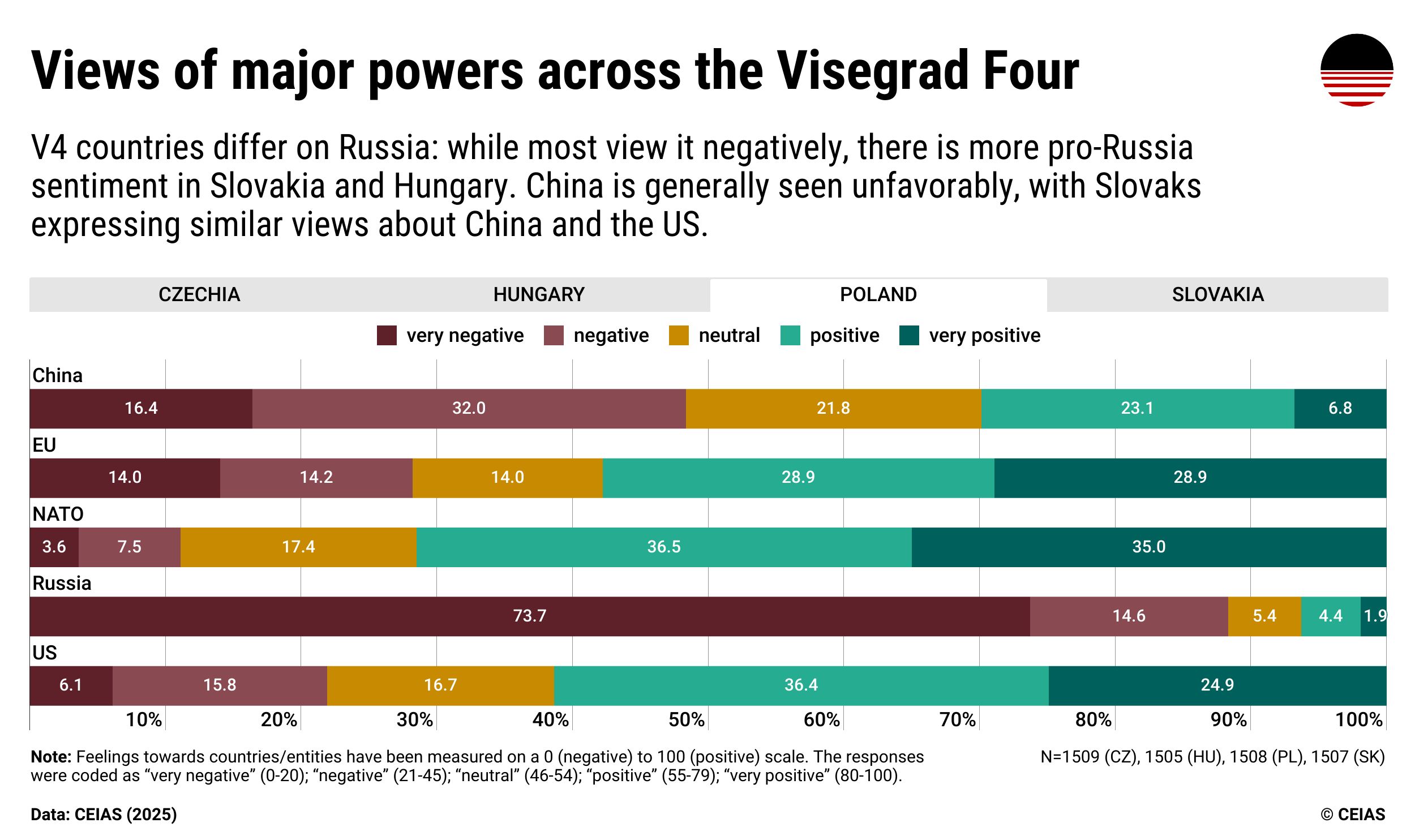
Clearer divisions emerge when it comes to attitudes toward the EU and the United States. Supporters of the ruling Civic Coalition tend to be more pro-European, while backers of the opposition Law and Justice and Confederation parties lean toward euroscepticism and a more pro-U.S. (read: pro-Trump) orientation.
The Main Threat: Russia
One additional data point adds nuance to the regional picture: perceptions of Russia’s military strength. While roughly 80% of respondents in Slovakia, the Czech Republic, and Hungary regard Russia as a militarily powerful state, only 61% of Poles agree. That divergence may reflect a growing sense of confidence, as Poland now boasts the third-largest army in NATO.
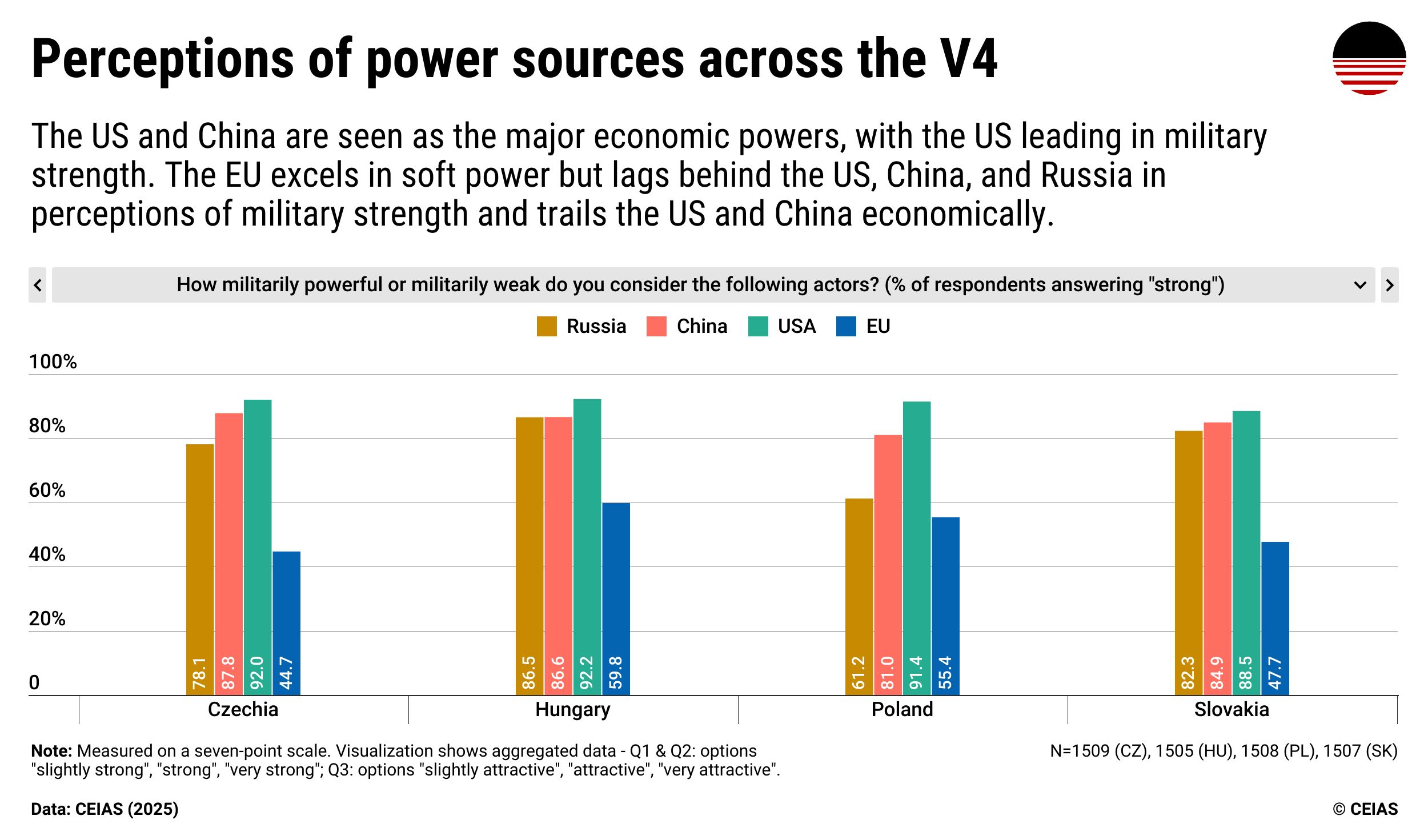
Russia remains the top perceived threat across the Visegrád region, though the intensity varies: 84% of Poles and 76% of Czechs see it as the greatest danger, compared to just 57% of Slovaks and 55% of Hungarians. China is generally seen as the second-biggest threat, especially in the Czech Republic (52%). Notably, in Slovakia, the United States (42%) is viewed as more threatening than China (38%).
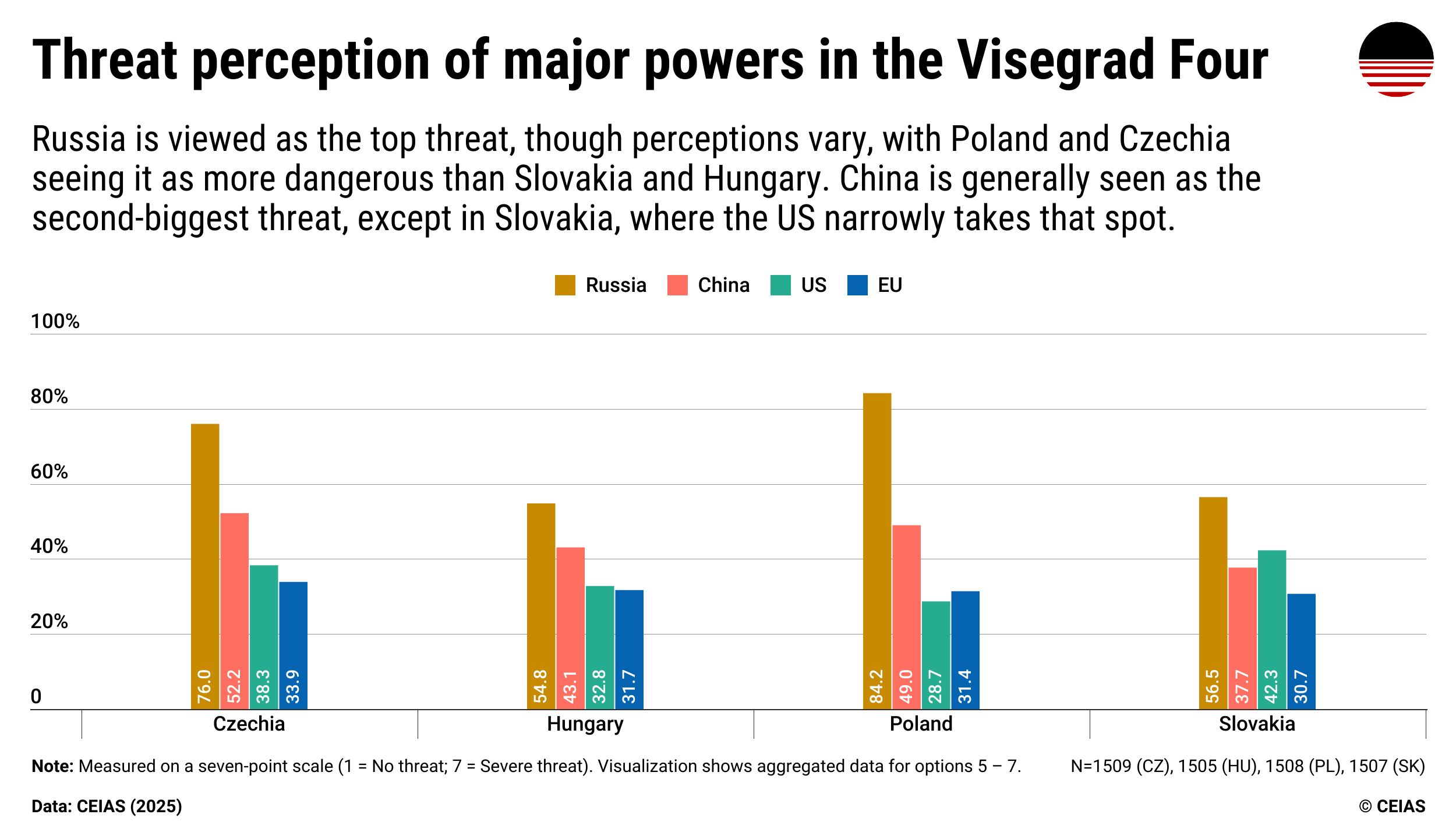
Cooperate with Americans or Chinese?
When asked whether the EU should deepen cooperation with China to reduce reliance on the United States, support ranged from a quarter to a third of respondents across the region. Slovaks (39%) and Hungarians (36%) were most supportive, while Czechs (27%) and Poles (28%) were considerably less enthusiastic.
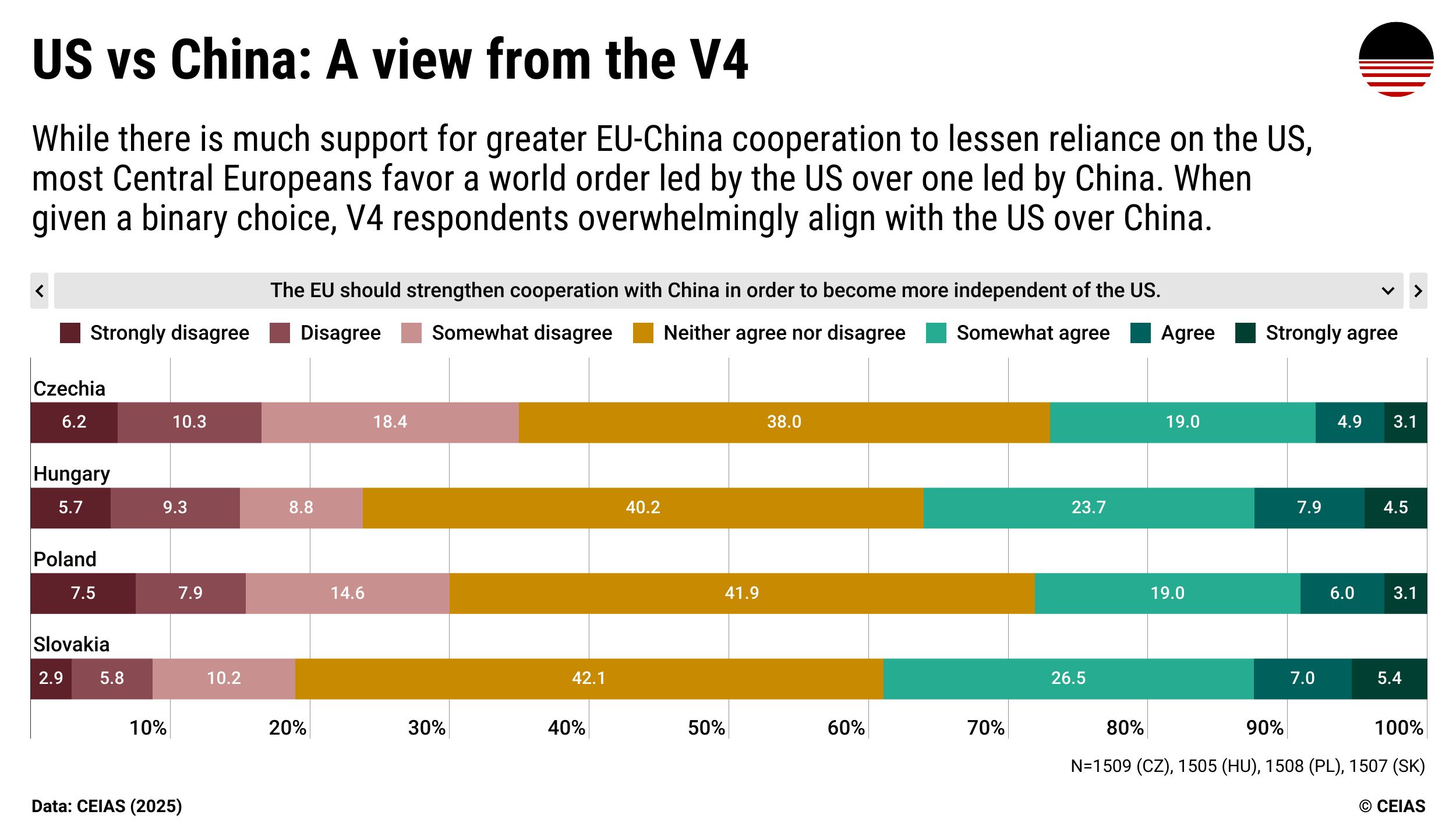
Despite some openness to deepening EU-China ties, few in the region would actually prefer a China-led world over continued U.S. leadership. Just 11% of Czechs, 13% of Hungarians, 11% of Poles, and 19% of Slovaks say a Chinese-led global order would be better for their country.
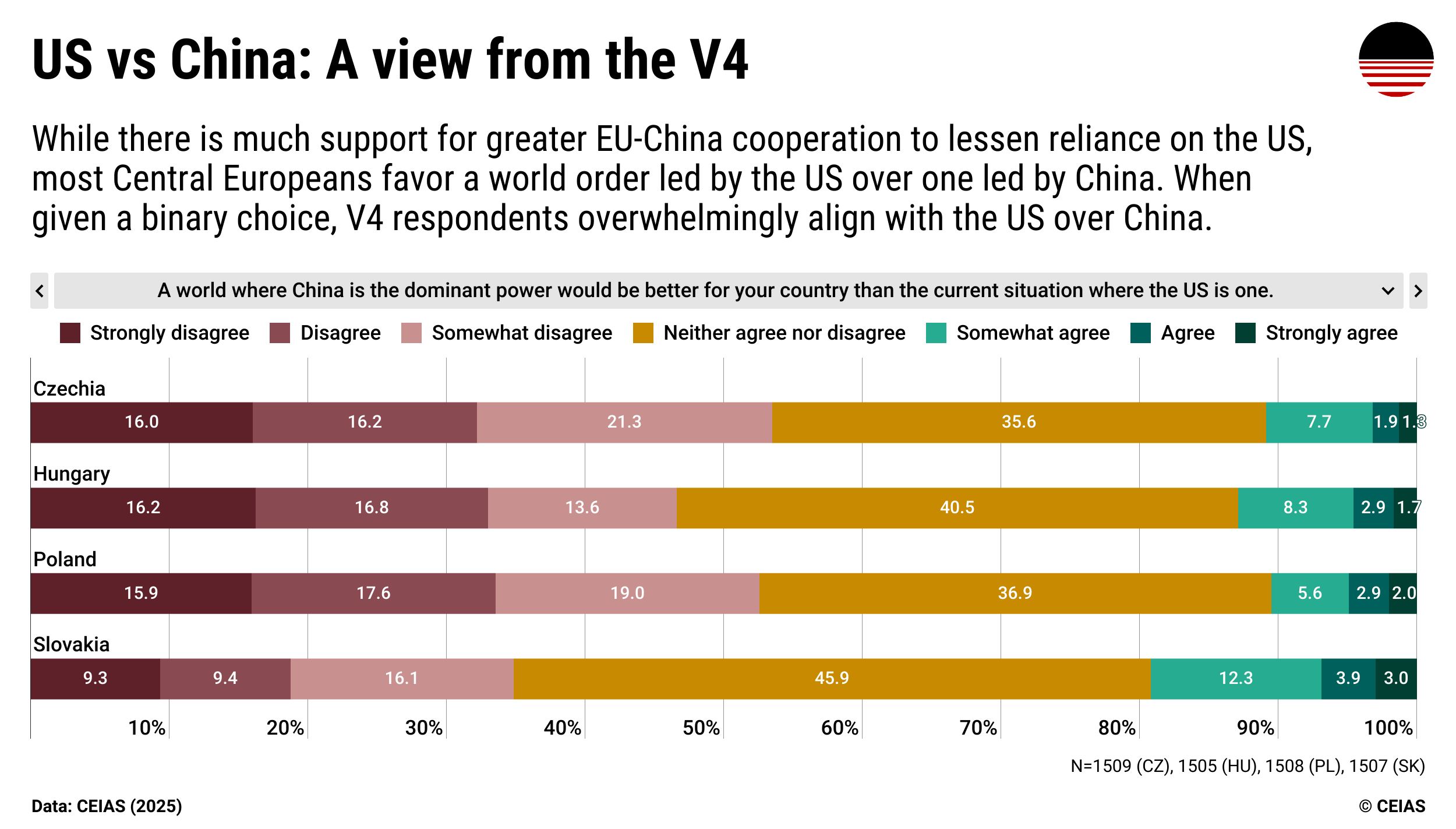
The full CEIAS study with detailed charts offers a deeper dive into Central Europe’s evolving geopolitical self-image—and what it may mean for future political alliances, both at home and abroad.
This article summarizes a study conducted by the Bratislava-based Central European Institute of Asian Studies (CEIAS) in collaboration with NMS Market Research, authored by Matej Šimalčík and Filip Šebok.
The study is based on an anonymous online survey, which was conducted from February 14 to March 9, 2025 in the Czech Republic, Hungary, Poland, and Slovakia, with around 1,500 respondents per country. The sample is nationally representative.
Subscribe to “Goulash”, our newsletter with original scoops and the best investigative journalism from Central Europe, written by Szabolcs Panyi. Get it in your inbox every second Thursday!
VSquare’s Budapest-based lead investigative editor in charge of Central European investigations, Szabolcs Panyi is also a Hungarian investigative journalist at Direkt36. He covers national security, foreign policy, and Russian and Chinese influence. He was a European Press Prize finalist in 2018 and 2021.

